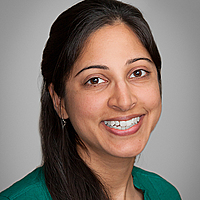- Undergraduate
- Graduate
- Research
- News & Events
- People
- Inclusivity
- Jobs
Back to Top Nav
Back to Top Nav
Back to Top Nav
Data and machine learning from a public health and equity lens.

Abstract: As machine learning methods become embedded in society, it has become clear that the data used, objectives selected, and questions we ask are all critical. My work looks at data and machine learning from a public health and equity lens. First, this motivates the design and development of data mining and machine learning methods to address challenges related to data and goals of public health, such as generating better hyper-local features to represent environmental attributes addressing challenges of sparsity, irregularity and representativeness of data. Second, principles of community and equity inspire innovations in machine learning. In this realm my work has leveraged causal models and machine learning to address realistic challenges of data collection and model use across environments, such as domain adaptation that improves prediction in under-represented population sub-groups by leveraging invariant information across groups when possible, and developing models to specifically incorporate structural factors to better account for and address sources of bias and disparities. A focus on public health, which is concerned with the individual, collective, and environmental factors that affect the health of human populations provides a principled approach spanning data, algorithms and questions to both mitigate bias and proactively design inclusive innovations.
Bio: Rumi Chunara is an Associate Professor at NYU, jointly appointed at the Tandon School of Engineering (in Computer Science) and the School of Global Public Health (in Biostatistics/Epidemiology). Her PhD is from the Harvard-MIT Division of Health Sciences and Technology, SM from MIT and BSc from Caltech. Her research group focuses on developing computational and statistical approaches for acquiring, integrating and using data to improve population-level public health. Considering health from a multi-level perspective means that she develops methods to work with data including social media, mobile phone, satellite imagery and other digital data sources as well as electronic health record, telemedicine and other clinical data. She is an MIT TR35, NSF Career, Facebook Research and Max Planck Sabbatical award winner and her work has been funded by diverse sources including the Gates Foundation, Rockefeller Foundation, NSF, NIH, and the International Growth Centre.
Events are free and open to the public unless otherwise noted.